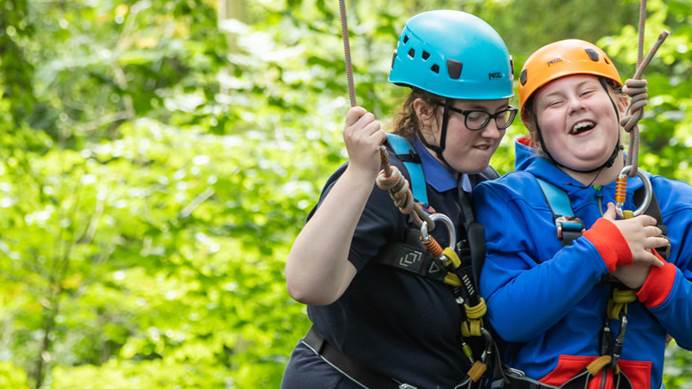Partnership screening policy
What we need to do to make sure that all of our partnerships bring benefits to Girlguiding and support our purpose
This policy is currently under review and will be updated by July 2024. If you need a copy of this policy ahead of this time, or you have any questions, please contact [email protected]. You can still read our partnership screening guidance here.
Approved: 3 November 2019
Version: 1
Our fundraising efforts include actively seeking partnerships with companies, trusts, foundations and major donors.
So we need to make sure that all of our partnerships bring benefits to Girlguiding, and further the organisation’s purpose.
Our partnership screening policy sets out how we consider the risks and benefits associated with partners. It’s to be used by all Girlguiding volunteers, staff and trustees.
The policy is underpinned by the donation acceptance policy - which is based on the Institute of Fundraising’s guidance - which states that Girlguiding can only refuse donations where a donation is unlawful, or where it would be detrimental to the purposes of Girlguiding, as set out in the royal charter. Such detriment (or anticipated detriment) has to be balanced against the benefit of having the funds from the partner, which enable Girlguiding to pursue its purposes.
Definitions
Screening – risk assessment and due diligence process to determine risks and benefits of a partnership.
Girlguiding – the Guide Association (registered charity no.306016) and all local units, countries, regions, counties, divisions and districts.
Partners – trusts and foundations, corporate partners or major donors.
Partnerships criteria
Girlguiding will be clear and transparent about our relationship with the partner. All partnerships must be in the best interest of the charity and must also meet the following criteria:
- They are aligned with Girlguiding’s vision, mission and values.
- They add value to Girlguiding through funding, awareness raising or knowledge and expertise.
- They are mutually beneficial.
And corporate partners must also meet one of the criteria listed below. There are no extra criteria for trusts or major donors:
- They are experts in their field and can provide specialist skills, experiences and knowledge that will benefit girls and young women, in line with our six programme themes.
- They are experts in the field and can provide specialist skills, knowledge and expertise in support of Girlguiding as an organisation.
- They are actively working to improve the gender balance in the workforce helping to ensure girls and young women can pursue any career they choose.
- They can help extend Girlguiding’s reach, relevance and attractiveness to girls, young women, parents and prospective volunteers so Girlguiding can provide great opportunities to more girls.
- They can help to amplify the voices and views of girls and young women on issues that matter to them.
- They can provide tangible rewards and benefits that are of value to girls or adult members which help to celebrate and thank them for their contributions and achievements in Girlguiding.
- They are publicly committed to improving opportunities and/or rights of women and girls and have policies and programmes in place to achieve this.
Risk assessment
Girlguiding takes a risk-based approach to partnership screenings. Each screening looks at the benefit to Girlguiding and the benefit to the partner, and assesses the risks to Girlguiding.
Due diligence
Due diligence checks must be completed for partners as part of the screening process.



